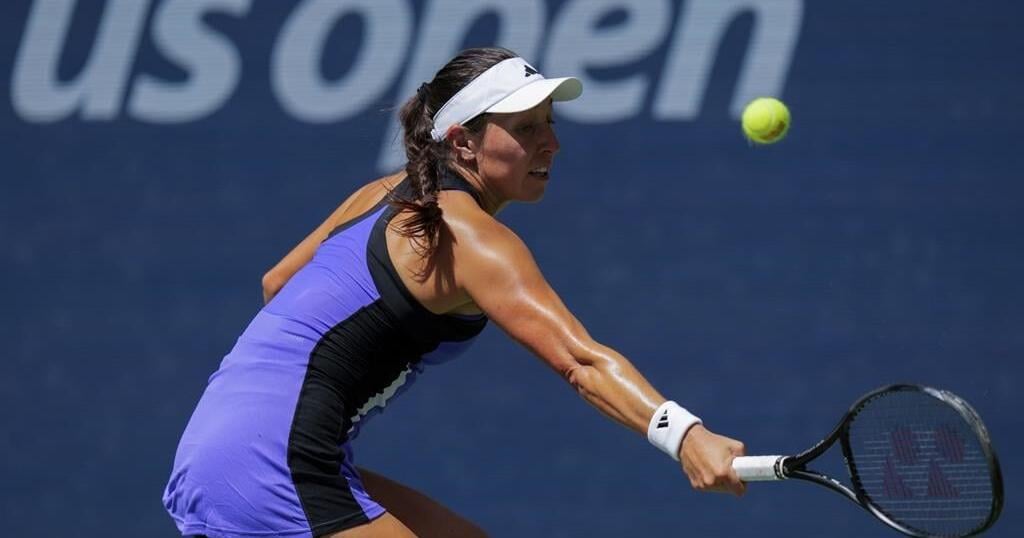NEW YORK (AP) — Jessica Pegula is back in the quarterfinals at the U.S. Open after a 6-4, 6-2 victory over Diana Shnaider on Monday, her seventh trip to that round at a Grand Slam tournament. Now comes the hard part: Pegula is 0-6 in major quarterfinals over her career.
The No. 6-seeded Pegula, an American whose parents own the NFL’s Buffalo Bills and NHL’s Buffalo Sabres, is on quite a run at the moment, having won 13 of her past 14 matches, all on hard courts. That included her second consecutive title in Canada and an appearance in the final at the Cincinnati Open, where she lost to No. 2 Aryna Sabalenka.
“I feel like there’s been more pressure this year, because I did so well coming into this tournament,” the 30-year-old Pegula said. “I want to keep working my way and hopefully bringing my best tennis for the later rounds this time.”
Also returning to the quarterfinals was Karolina Muchova, a 6-3, 6-3 winner over No. 5 Jasmine Paolini, the runner-up at the French Open and Wimbledon this season. Muchova enjoyed a breakthrough 2023, getting to the final in Paris and the semifinals in New York, before needing surgery on her right wrist in October, sidelining her for 10 months.
“This was my worst and most serious injury, I would say. But, I mean, I love the sport, so in my head, I was like, ’I will do everything I could to (get) better and try.’ And here I am today,” Muchova said. “I’m just a really happy kid now.”
Pegula made it to the quarterfinals at Flushing Meadows two years ago, before losing to No. 1 Iga Swiatek, who went on to win one of her five major championships. There could be another meeting against Swiatek looming: Pegula next faces the winner of Monday night’s match between Swiatek and No. 16 Liudmila Samsonova.
Three of Pegula’s six quarterfinal exits at Slams came against a No. 1 player — Swiatek twice and Ash Barty once.
Asked during her on-court interview in Arthur Ashe Stadium what she needs to do to get to the semifinals this time, Pegula joked: “I always say I just need to win the match to get to the semis, and then that’ll solve everything, right?”
She continued: “Listen, it doesn’t really matter to me. I mean, every match is every match. I’ve always played it like that. It just so happens to be (the) quarterfinals, but at the same time, to be able to say I’ve been in that position many, many times is great. So I just have to keep putting myself there and keep trying to play my game.”
That game worked quite well against the 18th-seeded Shnaider, a 20-year-old Russian who played one season of college tennis at NC State and won a silver medal in women’s doubles at the Paris Olympics.
Pegula compiled 22 winners, hit six aces, saved 7 of 9 break points that she faced and claimed five of Shnaider’s service games.
“I feel like I’m moving so much better around the court,” Pegula said, adding that this was the “best, off the ground, that I’ve felt.”
___

























